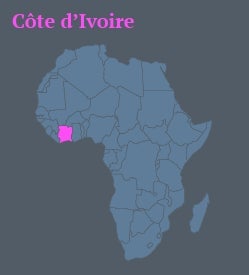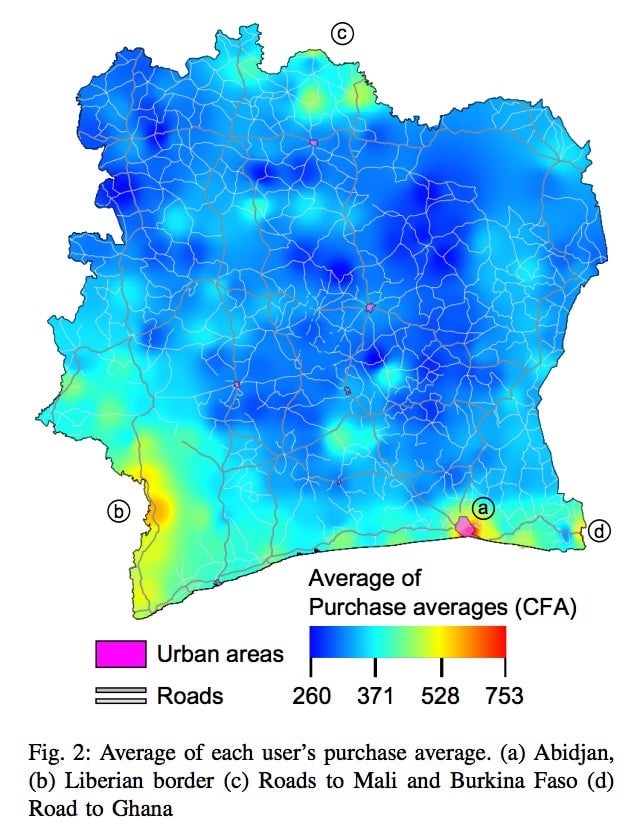How to map wealth in Africa using nothing but mobile-phone minutes
A group of Belgian researchers has come up with a novel way (pdf) of mapping the distribution of wealth in Côte d’Ivoire—by looking at purchases of mobile airtime minutes. After combing reams of data on individual purchases from a national mobile operator (unnamed in their report), they discovered that, in a country where prepaid phones dominate, there are basically two kinds of airtime buyers: those who make big infrequent purchases, filling up on minutes, and those who buy fewer minutes more regularly. Their theory is the re-fillers are richer than those who buy airtime often, and thus the average size of an airtime purchase can serve as a proxy for wealth. And indeed, the biggest average purchases, as the map below shows, happen in Abidjan, the capital; in a few cities in the interior; and around key border areas and trade routes.

A group of Belgian researchers has come up with a novel way (pdf) of mapping the distribution of wealth in Côte d’Ivoire—by looking at purchases of mobile airtime minutes. After combing reams of data on individual purchases from a national mobile operator (unnamed in their report), they discovered that, in a country where prepaid phones dominate, there are basically two kinds of airtime buyers: those who make big infrequent purchases, filling up on minutes, and those who buy fewer minutes more regularly. Their theory is the re-fillers are richer than those who buy airtime often, and thus the average size of an airtime purchase can serve as a proxy for wealth. And indeed, the biggest average purchases, as the map below shows, happen in Abidjan, the capital; in a few cities in the interior; and around key border areas and trade routes.

There’s good reason to believe in a connection between airtime purchases and wealth. Mobile service providers throughout Africa allow their customers to transfer minutes between one another. In Côte d’Ivoire, such transfers are especially easy. The result is that airtime is used as currency in Côte d’Ivoire, Ghana, Egypt, and other countries. Airtime goes beyond being a proxy for wealth. In a sense, it is wealth.
There is a certain irony in studies such as this one. The main reason to do them is that, in countries like Côte d’Ivoire, government statistics can be spotty and unreliable. But the absence of solid statistics means the researchers have no real way of validating their results.
Still, as the map suggests, they’re probably on the right track.